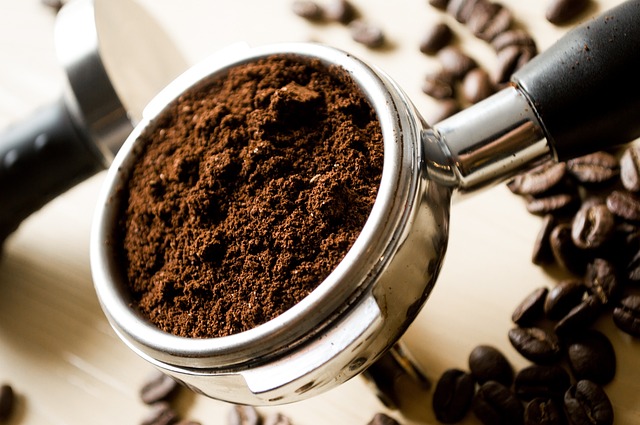Coffee grounds are often seen as a waste product, but they are actually a treasure trove of nutrients that can work wonders for your garden. From enriching the soil to deterring pests, coffee grounds can be a game-changer for your bean plants. Whether you’re growing green beans, lima beans, or any other type of bean, incorporating coffee grounds into your gardening routine can lead to a bountiful harvest.
The Science Behind Coffee Grounds and Bean Plants
Coffee grounds are a rich source of various nutrients that are essential for the healthy growth and development of bean plants. Let’s take a closer look at the key components that make coffee grounds such a valuable addition to your gardening toolkit.
Nitrogen Content
One of the primary reasons coffee grounds are so beneficial for bean plants is their high nitrogen content. Nitrogen is a crucial nutrient that plays a vital role in the plant’s vegetative growth, including the development of lush foliage and robust stems. As bean plants are heavy feeders, the nitrogen-rich coffee grounds can provide a steady supply of this essential nutrient, promoting vigorous growth and a bountiful harvest.
Acidity and pH Balance
Coffee grounds are naturally acidic, with a pH range between 6.5 and 6.8. This acidity can help to balance the pH levels in the soil, which is particularly important for bean plants. Beans thrive in slightly acidic soil, typically with a pH between 6.0 and 7.0. By incorporating coffee grounds into the soil, you can help to create the optimal growing conditions for your bean plants, ensuring they have access to the nutrients they need to flourish.
Microbial Activity
Coffee grounds are also a rich source of organic matter, which can help to stimulate the growth and activity of beneficial microorganisms in the soil. These microbes play a crucial role in breaking down organic matter, releasing essential nutrients, and improving soil structure. This increased microbial activity can lead to better nutrient uptake by the bean plants, resulting in healthier, more robust plants.
Trace Minerals
In addition to nitrogen, coffee grounds contain a variety of other essential trace minerals, such as potassium, phosphorus, and magnesium. These minerals are vital for the overall health and vitality of bean plants, supporting everything from root development to flower and fruit production.
How to Use Coffee Grounds for Bean Plants
Now that we’ve explored the science behind the benefits of coffee grounds for bean plants, let’s dive into the practical applications. Here are some effective ways to incorporate coffee grounds into your gardening routine:
Direct Application to the Soil
One of the simplest ways to use coffee grounds for your bean plants is to simply mix them directly into the soil. Sprinkle a thin layer of coffee grounds around the base of your bean plants, being careful not to let the grounds touch the stems or leaves. The coffee grounds will gradually break down and release their nutrients into the soil, providing a steady supply of nourishment for your plants.
Compost Integration
If you have a compost pile, coffee grounds make an excellent addition. The high nitrogen content of the grounds helps to balance the carbon-rich materials, such as dried leaves or shredded paper, creating a nutrient-rich compost that can be easily incorporated into the soil around your bean plants.
Mulch Application
Using coffee grounds as a mulch around your bean plants can provide a double-whammy of benefits. Not only will the grounds help to retain moisture and suppress weed growth, but they will also slowly release their nutrients into the soil as they decompose. This can be especially helpful during the hot, dry summer months when bean plants are particularly vulnerable to stress.
Liquid Fertilizer
For a more immediate nutrient boost, you can create a coffee ground-based liquid fertilizer. Simply steep used coffee grounds in water for a few days, then strain the mixture and apply it directly to the soil around your bean plants. This liquid fertilizer can be used as a regular supplement to provide a quick infusion of essential nutrients.
Pest Deterrent
Coffee grounds can also serve as a natural pest deterrent for your bean plants. The strong aroma and coarse texture of the grounds can help to repel common garden pests, such as slugs, snails, and even some types of ants. Sprinkle a barrier of coffee grounds around the base of your bean plants to create a protective perimeter.
Successful Stories from Gardeners
Now that we’ve covered the science and practical applications of using coffee grounds for bean plants, let’s take a look at some real-life success stories from gardeners who have reaped the rewards of this powerful gardening hack.
The Thriving Lima Bean Patch
Sarah, a passionate urban gardener, had been struggling to grow healthy lima bean plants in her small backyard. After reading about the benefits of coffee grounds, she decided to give it a try. She started by mixing a generous amount of coffee grounds into the soil before planting her lima bean seeds, and then continued to top-dress the soil with a light layer of grounds throughout the growing season.
To Sarah’s delight, her lima bean plants thrived like never before. The leaves were a vibrant green, the stems were sturdy, and the plants produced an abundant harvest of plump, juicy lima beans. Sarah was amazed at the transformation and couldn’t believe the difference the coffee grounds had made. She now swears by this gardening trick and recommends it to all her fellow bean-growing enthusiasts.
The Pest-Free Green Bean Bounty
John, a seasoned gardener with a love for green beans, had always struggled with a persistent slug problem in his garden. No matter what he tried, the slimy pests would find their way to his beloved green bean plants, leaving behind a trail of damage and disappointment.
That all changed when John started incorporating coffee grounds into his gardening routine. He began by sprinkling a thick barrier of grounds around the base of his green bean plants, and to his surprise, the slugs seemed to vanish almost overnight. Not only did the coffee grounds deter the pests, but John also noticed that his green bean plants were growing stronger and producing a bountiful harvest.
John was thrilled with the results and has continued to use coffee grounds as a natural pest deterrent for his green beans ever since. He’s even started sharing his gardening secrets with his neighbors, who have also reported great success in keeping their bean plants healthy and pest-free.
The Nutrient-Rich Soil Booster
Emily, a passionate organic gardener, was always on the lookout for ways to naturally enrich the soil in her vegetable garden. When she learned about the benefits of coffee grounds, she knew she had to give it a try.
Emily started by mixing coffee grounds into the soil before planting her bean seeds, and she continued to top-dress the soil throughout the growing season. She was amazed at how quickly the soil seemed to come alive, with a noticeable increase in microbial activity and a richer, more vibrant color.
As the bean plants grew, Emily noticed a dramatic difference in their overall health and vigor. The leaves were a deeper green, the stems were sturdy, and the plants produced a bountiful harvest of delicious beans. Emily was convinced that the coffee grounds had played a crucial role in creating the ideal growing conditions for her bean plants.
Now, Emily swears by the power of coffee grounds and incorporates them into her gardening routine for all her vegetable crops, including her beloved bean plants. She’s even started sharing her gardening secrets with friends and neighbors, who have also seen amazing results in their own gardens.
Conclusion
In conclusion, the humble coffee ground is a true gardening superstar when it comes to nurturing and supporting your beloved bean plants. From its nitrogen-rich composition to its ability to balance soil pH and stimulate microbial activity, coffee grounds offer a wealth of benefits that can help your bean plants thrive.
Whether you’re growing green beans, lima beans, or any other variety, incorporating coffee grounds into your gardening routine can lead to a bountiful harvest and healthier, more vibrant plants. From direct soil application to compost integration and even natural pest deterrence, the versatility of coffee grounds makes them an invaluable tool in the gardener’s toolkit.
So, the next time you brew a fresh cup of coffee, don’t toss those used grounds in the trash – save them and put them to work in your garden! Your bean plants will thank you with a plentiful and delicious harvest. Happy gardening!
1. How can I use coffee grounds for my bean plants?
To benefit your bean plants, you can use coffee grounds as a nutrient-rich compost or fertilizer. The acidity in coffee grounds can enhance plant growth and soil quality.
2. Are coffee grounds suitable for all types of plants?
While many plants, including acid-loving plants like coffee grounds, not all plants may thrive with coffee grounds as they can alter the pH of the soil.
3. Can I directly add fresh coffee grounds to my garden?
Fresh coffee grounds can be added directly to the garden, but it’s advisable to mix them into the soil or compost pile to avoid clumping and excessive acidity.
4. How do coffee grounds benefit bean plants specifically?
Coffee grounds provide essential nutrients to bean plants and can aid in their overall growth and development, particularly in vegetable gardens.
5. Is using spent coffee or spent coffee grounds as effective as fresh ones?
Spent coffee grounds still contain beneficial nutrients and can be used effectively in the garden or compost, though their potency may be slightly reduced compared to fresh coffee grounds.
6. Why do plants like coffee grounds in the garden?
Many garden plants appreciate coffee grounds due to their nutrient content, organic matter, and ability to improve soil structure.


Leave a Reply